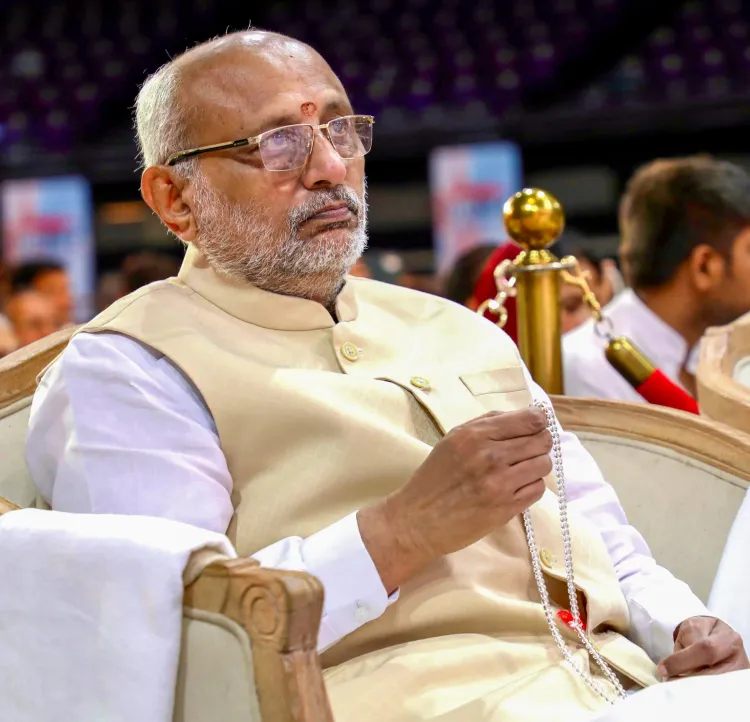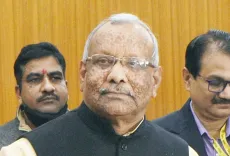Should Maharashtra Leverage AI for Improved Budget Tracking?

Synopsis
Key Takeaways
- Proactive use of AI for budget tracking is essential.
- Estimates Committees need sector-specific sub-committees.
- Citizen feedback mechanisms strengthen accountability.
- Legislative committees act as the conscience of the Executive.
- India aims for a $5 trillion economy by 2047.
Mumbai, June 24 (NationPress) Maharashtra Governor C.P. Radhakrishnan emphasized the necessity for legislative committees to actively utilize data analytics, dashboards, and AI-powered audit platforms to monitor budget performance and service delivery in real time.
He stated, “As we approach 2024, the total outstanding liabilities of all Indian states and UTs have surged to Rs 83.3 lakh crore. With states frequently allocating over 55 percent of their revenue receipts to committed expenditures such as salaries, pensions, and interest payments, it’s essential to move beyond traditional approaches.”
The Governor made these remarks during the Concluding Ceremony of the National Conference of Estimates Committees of Parliament, State Legislatures, and Union Territories.
He also highlighted the importance of establishing sector-specific sub-committees within the Estimates Committee—covering areas like education, health, and infrastructure—to ensure that reviews are focused and driven by expertise.
Over the past 75 years, the Estimates Committee has transformed into a powerful tool for oversight, influencing the efficient distribution of public funds, evaluating performance, and suggesting enhancements across various ministries and departments.
“As government expenditure continues to grow both in scale and complexity, the Estimates Committee’s role will become increasingly vital and demanding. Implementing mechanisms for citizen feedback on public spending can further enhance the committee’s oversight of grassroots implementation,” the Governor remarked.
In a democratic framework, the consensus-driven, non-partisan aspect of Estimates Committees grants them moral authority.
“Their constructive and fearless evaluations have improved decision-making and bolstered public confidence in our institutions,” he stated.
The Governor urged states and Union Territories to regularly share best practices and innovations through collaborative platforms, allowing successful models from one state to inspire reforms in others.
“Legislative committees like the Estimates Committee serve as the conscience of the Executive, ensuring that public funds are utilized wisely, efficiently, and justly. As India aims for a $5 trillion economy soon and a ‘Viksit Bharat’ by 2047, the significance of the Estimates Committee and other committees cannot be overstated,” he concluded.
“This ‘Amrit kaal’ provides us with a unique opportunity to unify efforts towards positioning Bharat as a global leader. We must endeavor to create modern systems across all democratic institutions, inspired by the Bharatiya thought process, ensuring our nation secures its place on the global stage as a robust and prosperous entity dedicated to the welfare of all,” the Governor added.
During the event, Lok Sabha Speaker Om Birla, Rajya Sabha Deputy Chairman Harivansh Singh, and Maharashtra Legislative Council Leader of Opposition Ambadas Danve shared their insights, with Maharashtra Legislative Assembly Deputy Speaker Anna Bansode proposing a vote of thanks.
Key figures present included Maharashtra Legislative Council Chairman Ram Shinde, Maharashtra Legislative Assembly Speaker Rahul Narvekar, Maharashtra Legislative Council Deputy Chairperson Neelam Gorhe, and Maharashtra Legislative Estimates Committee Chairman Arjun Khotkar.




